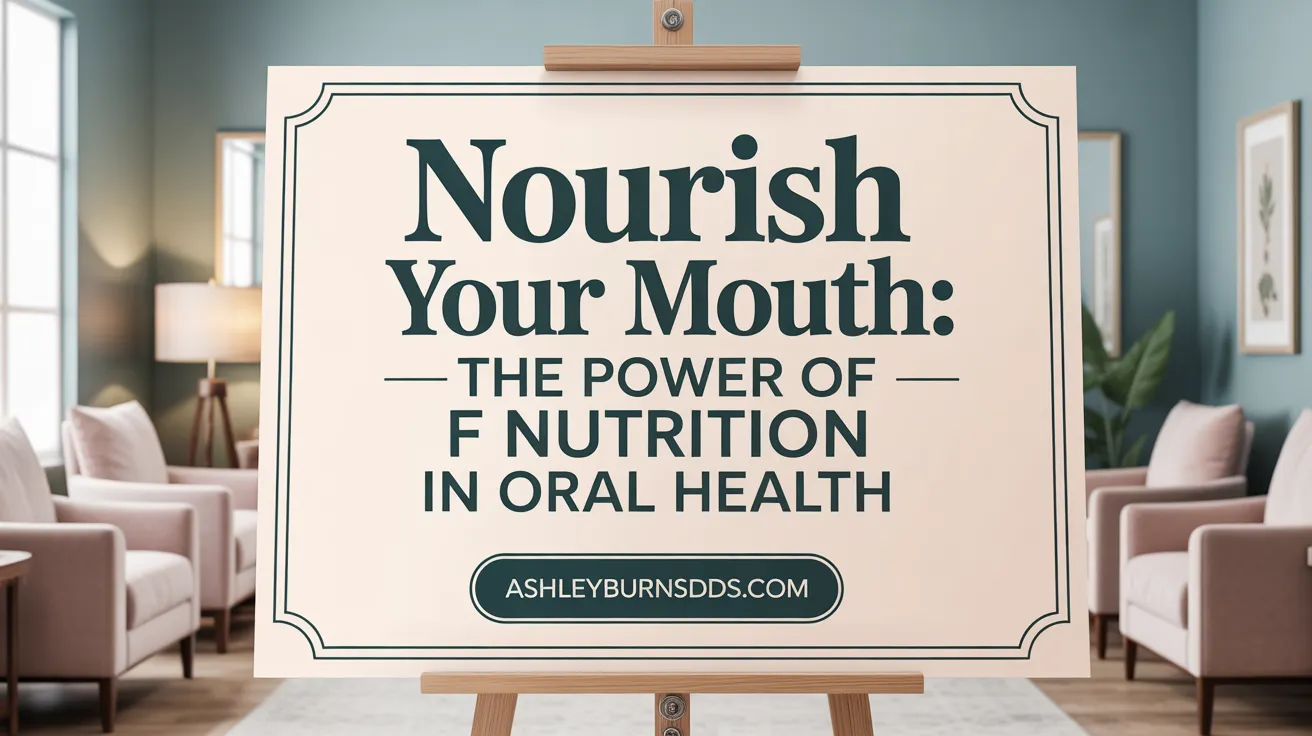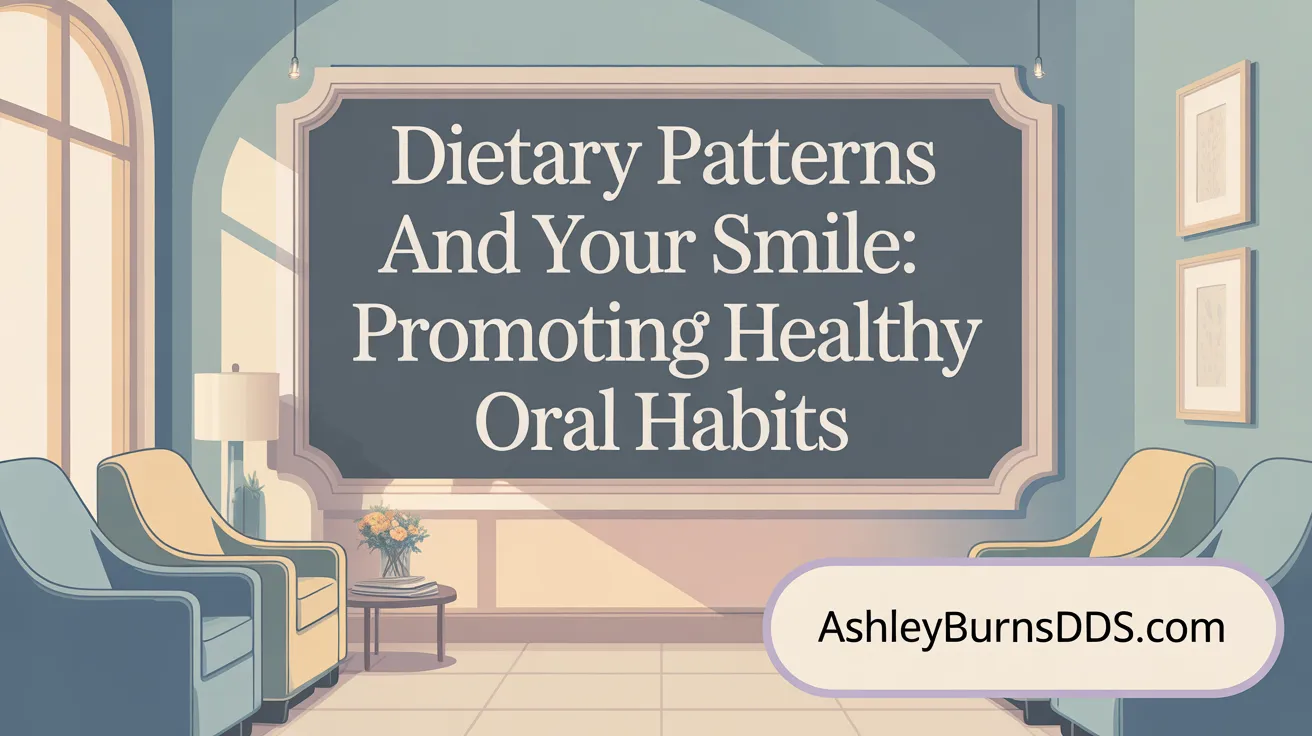Understanding the Critical Role of Diet in Oral Wellness
Oral health is influenced by more than just brushing and flossing; what you eat plays a fundamental role in maintaining healthy teeth and gums. From the sugars that promote cavities to nutrients that strengthen enamel and gums, diet shapes oral health outcomes. This article explores how different dietary elements impact oral conditions such as dental caries, erosion, periodontal disease, and oral cancer, offering evidence-based guidance to help you care for your smile through nutrition.
The Impact of Diet on Oral Diseases and Nutritional Deficiencies
How does diet impact oral health, including effects on dental caries, erosion, periodontal disease, oral cancer, and nutritional deficiencies?
Diet plays a crucial role in maintaining oral health and helping prevent various oral diseases. The type and frequency of foods consumed can influence the development of conditions such as dental caries, erosion, periodontal disease, and even oral cancer.
One of the most significant dietary factors is the intake of fermentable sugars, especially free sugars like sucrose. These sugars serve as substrates for bacteria in plaque that produce acids, leading to enamel demineralization and cavity formation. Consuming high levels of sugars, particularly more than 10% of total energy intake, elevates the risk of dental caries. Frequent snacking on sugary foods or drinks prolongs acid attacks on enamel, increasing decay risk.
Acidic foods and beverages, such as citrus fruits, soda, and vinegar, can cause dental erosion by lowering the pH in the mouth below the critical threshold of 5.5. This acid exposure dissolves mineral content from the enamel, weakening teeth over time.
Nutritional deficiencies also impact oral tissues. For instance, inadequate vitamin D impairs calcium absorption, weakening enamel and increasing vulnerability to decay. Similarly, deficiencies in vitamin C can cause gum inflammation and bleeding, exacerbating periodontal issues.
Certain foods, like dairy products, fruits, vegetables, and tea, may offer protective effects. Dairy products are rich in calcium and phosphates, essential minerals that help rebuild and strengthen enamel. Fruits and vegetables promote saliva production, which buffers acids and aids in remineralization. Vitamin-rich foods support immune function and tissue repair, reducing inflammation and the progression of periodontal disease.
The bidirectional nature of this relationship means that poor nutrition can worsen oral health outcomes, and existing oral diseases can impair nutrient intake by making chewing or swallowing difficult. Promoting a balanced diet rich in essential nutrients, minimizing processed and sugary foods, and maintaining good oral hygiene are integral strategies for preventing oral diseases and supporting overall health.
This relationship underscores the importance of dietary counseling and interprofessional collaboration in dental and medical care to ensure optimal oral and systemic well-being.
| Aspect | Impact | Nutritional Examples | Additional Notes |
|---|---|---|---|
| Dental Caries | Increased risk with high sugar intake | Sugary snacks, soft drinks, pastries | Fermentable sugars promote acid-producing bacteria |
| Dental Erosion | Caused by acidic foods and drinks | Citrus, soda, vinegar | pH below 5.5 damages enamel |
| Periodontal Disease | Worsened by nutritional deficiencies | Vitamin C-rich fruits, dairy products | Weakens immune response and tissue repair |
| Oral Cancer | Reduced risk with antioxidant-rich diet | Fruits, vegetables, green tea | Anti-inflammatory and antioxidant effects |
| Nutritional Deficiencies | Weakens enamel, impairs healing | Calcium-rich dairy, vitamin D, fruits, vegetables | Increase susceptibility to various oral conditions |
Maintaining a balanced diet, limiting sugar and acid intake, and choosing protective foods are essential actions to uphold and improve oral health.
Dietary Habits and Their Relationship to Cavities and Gum Disease
What is the relationship between dietary habits and oral health issues such as cavities and gum disease?
Dietary habits have a direct impact on oral health, influencing both the development of cavities and the health of gums. Consuming foods high in sugars, especially free sugars like sucrose, relates strongly to the formation of plaque that produces acids. These acids attack enamel, resulting in cavities. Frequent intake of sugary and processed foods prolongs acid attacks, increasing the risk of tooth decay.
Not just sugars, but also acidic foods and beverages like cola, orange juice, and vinegar can erode enamel through a process called dental erosion. When enamel wears down, teeth become more vulnerable to decay. Conversely, foods rich in essential nutrients such as calcium, vitamin D, and vitamin C play a protective role. Dairy products strengthen enamel, while fruits and vegetables stimulate saliva production, which neutralizes acids.
A balanced diet with ample fruits, vegetables, whole grains, and lean proteins supports healthy gums and teeth. These foods help prevent periodontal disease and reduce systemic inflammation. On the other hand, diets deficient in key nutrients or high in processed sugars tend to lead to increased plaque buildup, weakening of immune responses, and greater susceptibility to gum disease.
In summary, adjusting dietary patterns by reducing sugar and acid intake and increasing nutrient-rich foods is vital. Improving diet quality not only prevents cavities and gum disease but also promotes overall oral and systemic health.
How Sugars and Specific Foods Affect Teeth and Gums

How do specific foods, especially sugars, influence the health of teeth and gums?
Foods play a vital role in maintaining oral health, but some can significantly increase the risk of dental problems. Sugars, particularly free sugars like sucrose, glucose, and fructose, are major contributors to tooth decay. These sugars serve as food for bacteria such as Streptococcus mutans, which are found in dental plaque.
When these bacteria metabolize sugars, they produce acids as byproducts. This acid production lowers the pH in the mouth and leads to the demineralization of enamel—the hard outer layer of teeth. Frequent consumption of sugary foods or beverages, especially between meals, prolongs acid attacks on teeth and prevents remineralization, increasing the chance of cavities.
Apart from sugars, acidic foods and drinks like citrus fruits, soft drinks, and vinegar can cause direct erosion of enamel. Enamel erosion occurs when the pH drops below 5.5, which is common with many acidic beverages.
To mitigate these risks, limiting free sugar intake is crucial. This includes avoiding sticky sweets, candies, and sugary drinks and adopting good oral hygiene practices such as brushing with fluoride toothpaste. Fluoride helps in strengthening enamel and repairing early decay.
Impact of food choices on periodontal health
Certain foods, including dairy, fibrous vegetables, and chewing gums, can actually help protect oral health. Dairy products like cheese and milk are rich in calcium and phosphates, which support enamel strength and aid in remineralization.
Fibrous foods such as apples, carrots, and celery stimulate saliva production. Saliva is essential because it neutralizes acids and washes away food debris, reducing the substrate available for bacteria.
Eating habits matter—consuming foods as part of regular meals is preferable to frequent snacking. When snacking, choosing sugar-free options and avoiding high-sugar foods like dried fruits can help maintain a healthy mouth environment.
In summary, foods high in free sugars and acids pose risks to tooth enamel and gums. Conversely, incorporating protective foods and maintaining good oral hygiene can significantly improve oral health outcomes.
Nutrition’s Role in Preventing and Exacerbating Oral Health Problems

What role does nutrition play in preventing or exacerbating oral health problems?
Nutrition is fundamental to maintaining healthy teeth and gums. Essential nutrients like calcium, vitamin D, and vitamin C support the strength and repair of oral tissues. Calcium and vitamin D, often obtained from dairy products and fortified foods, help rebuild and protect enamel, making teeth more resistant to decay. Vitamin C is crucial for healthy gums, as it helps reduce inflammation and supports tissue healing.
A balanced diet rich in fruits, vegetables, whole grains, lean proteins, and low-fat dairy provides these vital nutrients. Such a diet boosts saliva production, which neutralizes harmful acids and washes away food particles, reducing the risk of plaque buildup and cavities.
Conversely, high consumption of added sugars—even in processed foods, sweets, and sugary drinks—can promote dental caries. Bacteria in plaque ferment these sugars, producing acids that demineralize enamel, leading to decay.
Nutritional deficiencies impair oral tissue health and immune response. For instance, insufficient vitamin D hampers calcium absorption, weakening enamel and increasing susceptibility to caries. Deficits in vitamin A, iron, and B vitamins can cause enamel hypoplasia and impair the healing of oral tissues, exacerbating periodontal diseases and delaying recovery from dental procedures.
Acidic foods and beverages, while not necessarily directly causing decay, can erode enamel if consumed excessively, especially without proper oral hygiene. This process worsens sensitivity and predisposes teeth to further damage.
In summary, good nutrition—limiting sugars and acidic foods while ensuring adequate intake of protective vitamins and minerals—is vital for preventing oral diseases. A nutrient-rich diet supports tissue integrity, immune defense, and the reparative processes necessary for overall oral health.
Dietary Recommendations and Practical Tips for Healthy Teeth and Gums

What dietary recommendations and tips can help maintain healthy teeth and gums?
Maintaining healthy teeth and gums starts with a balanced diet that provides the essential nutrients needed for oral health. Foods rich in calcium, such as dairy products, leafy greens, and almonds, help strengthen tooth enamel and rebuild damaged tissues. Vitamin C-rich fruits and vegetables like oranges, strawberries, and peppers support gum health and aid in healing.
Incorporating crunchy and fibrous foods such as carrots, apples, and celery stimulates saliva production. Saliva acts as a natural buffer, neutralizing acids and washing away food particles, thereby protecting teeth from decay. These foods also help mechanically remove plaque from tooth surfaces.
It is crucial to limit consumption of sugars and acids that can cause dental erosion and caries. Processed foods high in free sugars, especially sucrose, should be consumed sparingly and primarily during mealtimes. Using fluoride-containing products, drinking fluoridated water, and eating foods rich in fluoride, like fish and tea, promote remineralization and strengthen enamel.
Including probiotic foods like yogurt, kefir, and sauerkraut can help balance oral bacteria, reducing harmful microbial activity. Omega-3 fatty acids found in oily fish such as salmon and mackerel have anti-inflammatory properties that benefit gum health.
What foods stimulate saliva and protect enamel?
Certain foods naturally stimulate saliva flow, which is vital in protecting enamel and preventing cavities. These include
- Crunchy fruits and vegetables like apples, carrots, and celery
- Sugar-free chewing gum containing xylitol
- Nuts and seeds
Foods that contain fluoride, such as tea and fish with bones, also contribute to strengthening enamel.
Avoiding hard, sticky, and sugary foods minimizes the risk of damage. Instead, focus on nutrient-dense options that support remineralization.
What strategies can be used to limit sugar and acid intake?
Reducing sugar intake is vital in preventing dental caries. Read nutrition labels carefully to detect added sugars and choose products with lower sugar content. Limit sugary snacks and beverages, especially between meals, to avoid prolonged acid attacks.
Consume sweets and sugary drinks during mealtimes, when salivary flow is increased, helping to neutralize acids. Prefer water, milk, or diluted fruit juices over sodas and flavored beverages.
To reduce acid exposure, avoid excessive consumption of acidic foods like citrus fruits, vinegar, and certain soft drinks. Using a straw when drinking acidic beverages can help minimize contact with teeth.
How can hydration and oral hygiene be optimized?
Proper hydration with water, particularly fluoridated water, is essential for maintaining a moist environment in the mouth, supporting saliva production, and washing away food debris.
Chewing sugar-free gum with xylitol after meals stimulates saliva and helps buffer acids. Regular brushing twice daily with fluoride toothpaste and flossing remove plaque buildup, preventing decay and gum disease.
It is advisable to wait at least 30 minutes after consuming acidic foods or drinks before brushing to avoid damaging softened enamel. Visiting the dentist regularly ensures early detection and management of dental issues.
Combining a nutrient-rich diet with good oral hygiene habits creates a strong foundation for healthy teeth and gums, reducing the risk of cavities, erosion, and periodontal problems.
How Different Dietary Patterns Influence Oral Health Outcomes

How do different dietary patterns affect oral health outcomes?
Dietary habits play a crucial role in the health of our teeth and gums. Diets rich in processed foods, sugars, and acidic beverages tend to increase the risk of dental problems. For example, consuming high amounts of free sugars—especially sucrose—creates an environment where bacteria in the mouth ferment these sugars to produce acids. These acids lower the pH in the oral cavity below the critical threshold of 5.5, leading to demineralization of enamel and the development of caries.
Frequent snacking on sugary or starchy foods prolongs acid attacks because saliva's natural buffering ability is overwhelmed, reducing the opportunity for remineralization. Moreover, diet patterns that include a high intake of acidic foods and drinks, such as soda, citrus juices, and vinegar-based foods, can cause dental erosion by directly eroding tooth surfaces.
In contrast, dietary patterns focusing on whole foods and nutrient-dense options support better oral health. Diets emphasizing fruits, vegetables, whole grains, lean proteins, and low-fat dairy provide essential minerals—like calcium, phosphorus, and vitamin D—that strengthen enamel and support tissue repair.
Furthermore, diets like the Mediterranean diet, which is rich in vegetables, nuts, olive oil, and fish, have been linked with lower inflammation levels, reduced periodontal disease progression, and overall better oral tissue health. High consumption of protective foods such as cheese, apples, cranberries, and green tea can inhibit bacterial growth and neutralize acids, reducing the risk of decay and erosion.
In addition, micronutrients like vitamin C are vital for maintaining healthy gum tissue and preventing periodontal disease. Vitamin C deficiency can lead to bleeding gums and increased susceptibility to infections.
Overall, adopting dietary patterns that reduce sugar intake, limit acidic foods, and include protective and nutrient-rich foods can vastly improve oral health outcomes, reducing the incidence of caries, erosion, and periodontal issues.
Additional Factors Influencing Oral Health and the Importance of Integrated Care

How do fluoride and oral hygiene work together with diet to promote oral health?
Fluoride strengthens tooth enamel and helps in remineralization, significantly reducing the risk of cavities. Regular brushing with fluoride toothpaste twice a day, combined with good oral hygiene practices like flossing and professional dental cleanings, maximizes protective benefits. When paired with a diet low in fermentable sugars and acidic foods, this approach creates an environment less conducive to bacterial acid production and enamel erosion.
How does socio-economic status and access to food impact oral health?
Socio-economic factors greatly influence oral health outcomes. Individuals in low-income populations often face barriers to nutritious foods and dental care, increasing their risk for cavities and periodontal disease. Limited access to fresh produce, dairy, and health services, combined with higher exposure to inexpensive, processed foods high in sugars, can result in poorer oral health and higher prevalence of oral diseases.
What role does systemic health and medications play in oral health?
Systemic conditions like diabetes, osteoporosis, and autoimmune disorders can worsen oral health by impairing immune response and promoting inflammation. Certain medications, such as antihypertensives and antidepressants, may cause dry mouth, reducing saliva's protective effects and increasing vulnerability to decay and mucosal issues. Managing these systemic factors alongside oral hygiene and nutrition is essential for comprehensive care.
Why is interprofessional collaboration important for dietary advice and preventing oral diseases?
Effective prevention of oral health problems depends on cooperation among dental, medical, and nutrition professionals. Healthcare providers can share insights into patients' overall health, dietary habits, and medication use. This integrated approach ensures tailored advice, such as reducing sugar intake, improving nutrient status, and promoting proper hygiene, which collectively enhances oral and systemic health.
| Aspect | Impact on Oral Health | Recommendations | Additional Notes |
|---|---|---|---|
| Fluoride | Strengthens enamel, reduces decay | Use fluoride toothpaste, fluoride treatments | Crucial in both community water fluoridation and personal care |
| Socio-economic status | Limited access increases disease risk | Improve access to nutritious food and dental services | Impacts early intervention and prevention programs |
| Systemic health | Diseases and medications affect oral tissues | Manage underlying conditions, review medication side effects | Maintain regular dental visits for at-risk patients |
| Interprofessional care | Enhances tailored prevention | Collaboration among providers on diet and hygiene | Ensures comprehensive management of risks |
Integrating nutritional strategies with hygiene practices and systemic health management forms the cornerstone of effective oral care, emphasizing the need for a multidisciplinary approach.
Optimizing Oral Health Through Informed Dietary Choices
Oral health is intricately linked to diet, with numerous oral diseases being directly influenced by what and how we eat. Consuming a nutrient-rich, balanced diet while limiting sugars and acidic foods protects teeth and gums from decay, erosion, and disease. Pairing dietary mindfulness with proper oral hygiene and regular dental care creates a powerful defense against oral health problems. Awareness of different dietary patterns and their impacts allows individuals to make informed choices for lasting oral wellness. Ultimately, nutrition, alongside overall health care, is foundational to preserving a healthy, vibrant smile throughout life.
References
- Nutrition and Oral Health
- Diet and my teeth
- Good Oral Health and Diet - PMC
- Oral Health - The Nutrition Source
- How Poor Nutrition Affects Your Oral Health
- Diet and Nutrition to Prevent Dental Problems - StatPearls
- Diet and Dental Health
- How Does Your Diet Effect Your Teeth?
- Nutrition and Oral Health 101
